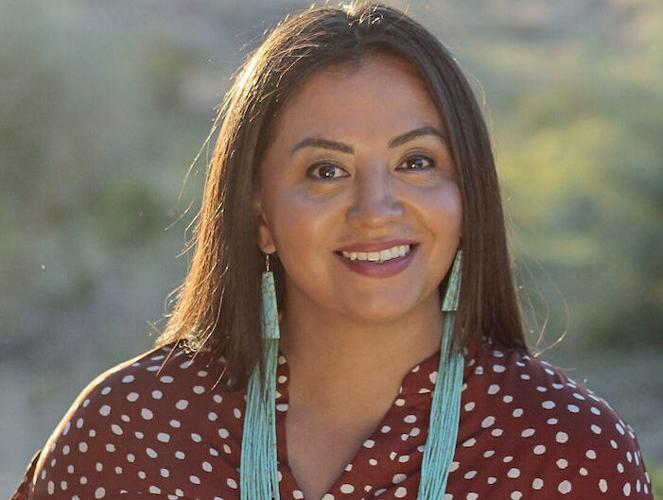
- Details
- By Native News Online Staff
Toni Stanger-McLaughlin, CEO of the Native American Agriculture Fund (NAAF), is voicing strong support for Bureau of Indian Education (BIE) schools in response to recent executive orders that threaten essential funding and resources for culturally relevant education. NAAF has actively collaborated with BIE and numerous Tribal schools to advance agricultural education rooted in Indigenous knowledge, values, and practices.
As a dedicated partner to BIE and Tribal schools, NAAF remains committed to fostering agricultural education tailored to the unique needs of Indigenous communities. This approach not only cultivates skilled agriculturalists but also reinforces a deep connection to cultural heritage. Ensuring Native students receive an education that respects and integrates their traditions is vital to their success.
“We believe it is every parent’s right to determine what constitutes appropriate education for their child. However, this must not come at the expense of others, especially when Tribal communities often reside in remote areas where every dollar is critical for sustaining their schools,” said Stanger-McLaughlin. “Reducing funding for BIE schools could lead to irreparable harm to our educational systems and our children’s futures.”
NAAF underscores that the federal government has a trust responsibility to provide education to Tribal citizens, as established through treaties, statutes, and settlements. Upholding this obligation means ensuring Indigenous students receive a quality education that reflects their cultural identities and lived experiences.
“We urge the new administration to recognize the detrimental impact of these executive orders and seek a pathway for enhancing these programs, services, and institutions rather than divesting from them,” added Stanger-McLaughlin. “As we support the continuation of BIE funding, we stand with Tribal Governments and communities. It is essential that we work collectively to ensure our schools remain a safe and supportive environment where Tribal students can learn, grow, and flourish.”
NAAF remains steadfast in its commitment to BIE schools and the empowerment of Tribal citizens in shaping their educational systems. Through advocacy, partnerships, and a dedication to honoring the federal government’s trust and treaty responsibilities, NAAF strives to ensure that Indigenous education—from early childhood programs to higher education and technical trades—continues to flourish.
More Stories Like This
Native Americans Could Be Hit Hard as Education Department Resumes Student Loan Wage GarnishmentHanging a Red Dress for Christmas: MMIP, Native Higher Education, and Hope for a Better New Year
Native Students Can Win $5,000 Scholarship, International Distribution in Pendleton Design Contest
American Indian College Fund Raises Alarm Over Plan to Shift Native Programs Away From the Dept. of Education
MacKenzie Scott Foundation Gives $5 Million Contribution to Little Priest Tribal College
Help us defend tribal sovereignty.
At Native News Online, our mission is rooted in telling the stories that strengthen sovereignty and uplift Indigenous voices — not just at year’s end, but every single day.
Because of your generosity last year, we were able to keep our reporters on the ground in tribal communities, at national gatherings and in the halls of Congress — covering the issues that matter most to Indian Country: sovereignty, culture, education, health and economic opportunity.
That support sustained us through a tough year in 2025. Now, as we look to the year ahead, we need your help right now to ensure warrior journalism remains strong — reporting that defends tribal sovereignty, amplifies Native truth, and holds power accountable.
 The stakes couldn't be higher. Your support keeps Native voices heard, Native stories told and Native sovereignty defended.
The stakes couldn't be higher. Your support keeps Native voices heard, Native stories told and Native sovereignty defended.
Stand with Warrior Journalism today.
Levi Rickert (Potawatomi), Editor & Publisher

